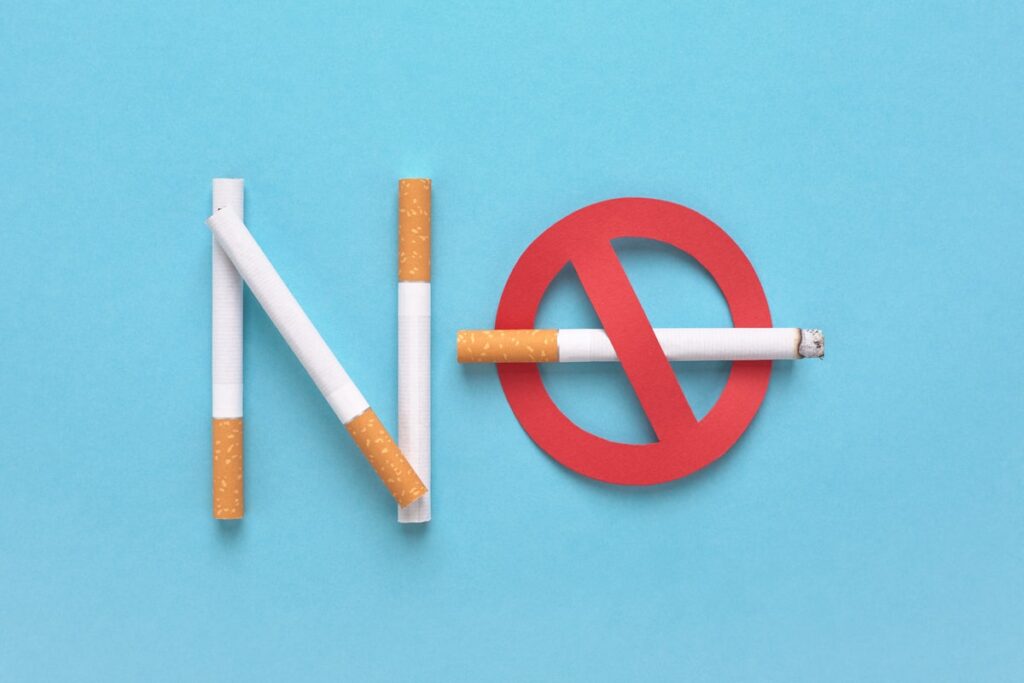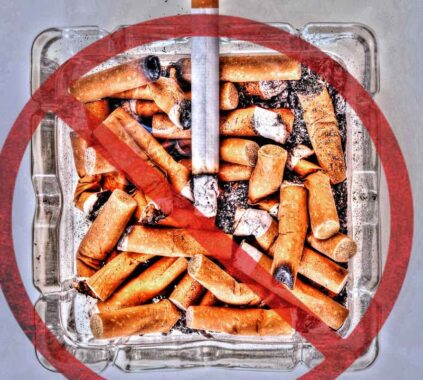Cancer, a deadly disease affecting millions worldwide, is a significant public health issue. Smoking is one of the most well-established and preventable risk factors for numerous types of cancer. For decades, experts and health professionals have investigated the relationship between smoking and cancer, constantly discovering a solid link. This comprehensive guide explores the scientific evidence supporting this association, the specific forms of cancer associated with smoking, the mechanisms involved, and the significance of smoking cessation.
The Tobacco Epidemic
Smoking cigarettes, cigars, and other tobacco products have been a part of human civilization for ages. However, it was not until the twentieth century that smoking’s prevalence skyrocketed, becoming a global epidemic. The tobacco industry’s marketing methods, social acceptance, and a lack of information about the hazardous effects of smoking all contributed to the widespread use of tobacco.
The Extensive Evidence for Smoking and Cancer
The link between smoking and cancer is well-established, with robust scientific data proving it. Numerous epidemiological studies have repeatedly demonstrated that smokers are more likely than nonsmokers to develop various types of cancer. The most noteworthy of these studies is the seminal study published by the United States Surgeon General in 1964, which linked smoking to lung cancer.
Subsequent research has confirmed this link, demonstrating that smoking is responsible for nearly 85% of all lung cancer cases.
Furthermore, smoking has been revealed to be a substantial risk factor for a variety of different cancers, including but not limited to:
Bladder Cancer:
Smokers are more likely to develop bladder cancer because carcinogens in tobacco smoke can be taken into the bloodstream and passed by the kidneys, eventually damaging the bladder lining.
Esophageal Cancer:
Smoking has been associated with an increased risk of esophageal cancer, with the chance increasing directly to the number of cigarettes smoked and the length of time smoked.
Colorectal Cancer:
Research has linked smoking to an increased risk of colorectal cancer, with smoking cessation leading to a progressive reduction in this risk.
Pancreatic Cancer:
Tobacco smoke compounds may cause inflammation and an elevated risk of pancreatic cancer.
Liver Cancer:
Smoking is a possible risk factor for liver cancer, especially in people with other risk factors, such as viral hepatitis.
Mechanisms of Cancer Caused by Smoking
The mechanisms by which smoking causes cancer are complex and not entirely understood. Tobacco smoke contains about 7,000 compounds, at least 70 recognized carcinogens. When someone inhales cigarette smoke, the hazardous chemicals enter the lungs and are absorbed into the circulation, spreading throughout the body.
The presence of polycyclic aromatic hydrocarbons (PAHs) and nitrosamines in tobacco smoke is one of the critical causes of smoking-induced cancer. These compounds can directly damage DNA in cells, resulting in genetic changes and an elevated risk of cancer formation. Furthermore, smoking affects the immune system, making it less efficient at recognizing and eliminating cancer cells, allowing them to multiply more quickly.
Furthermore, smoking-induced inflammation has been linked to cancer development. Chronic inflammation produced by smoking can generate dangerous free radicals, which can cause cell and DNA damage. Chronic damage can lead to the uncontrolled proliferation of cancer cells over time.

The Importance of Quitting Smoking
While there is no denying the relationship between smoking and cancer, there is reason to be optimistic. According to studies, quitting smoking substantially decreases the risk of cancer and other smoking-related disorders. In reality, the chance of developing lung cancer decreases quickly after stopping and decreases over time.
Because nicotine is highly addicting, quitting smoking can be difficult. However, various smoking cessation strategies and resources are available to assist smokers in overcoming this addiction. Behavioral therapy, support groups, nicotine replacement therapies, and prescription drugs have all been found to help smokers quit smoking.
It is critical to emphasize that stopping smoking is advantageous at any age. Quitting smoking can improve the health of people who have smoked for decades. Many smoking-related disorders, including cancer, can be significantly decreased within a few years of quitting, and overall health can improve.
Conclusion
To summarise, there is a well-established and scientifically verified link between smoking and cancer. Tobacco use is a significant risk factor for various cancers, including lung, bladder, esophageal, colorectal, pancreatic, and liver. Tobacco smoke contains carcinogenic substances, which, together with persistent inflammation and immune system suppression, lead to cancer development.
There is hope for smokers who wish to improve their health and lower their cancer risk. Quitting smoking is one of the most beneficial decisions a person can make for their health. The earlier one quits smoking, the better the health benefits; nonetheless, there is always time to begin the journey toward a smoke-free life.
Tobacco control regulations, awareness efforts, and smoking cessation programs, for example, all play an essential role in reducing the smoking pandemic and the cancer burden. Working together can pave the way for a healthy, cancer-free future.
Last modified: August 25, 2023






